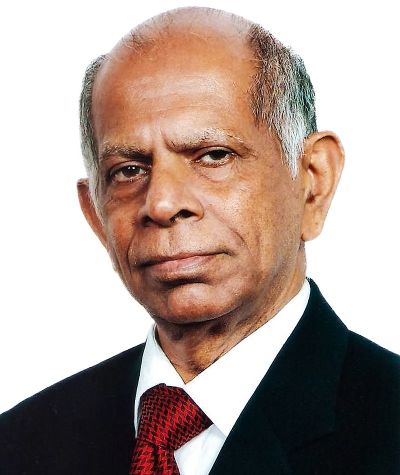China is turning its attention to the Tamils in the north, using some of the same tactics previously employed during the Rajapaksa era to slowly win the trust of the Tamil minority. That, for India, is an emerging concern.
Mark S. Cogan is an Associate Professor of Peace and Conflict Studies at Kansai Gaidai University, based in Osaka Prefecture, Japan. He specializes in peacebuilding, human rights, democratization, and social movements, particularly in Thailand and Cambodia. Mark’s research focuses on Southeast Asia, particularly on authoritarian regimes in Thailand and Cambodia, with an emphasis on foreign policy, bilateral and multilateral relations, and joint security cooperation.
The general consensus is that China is actively increasing its influence in the Indian Ocean region, both on land and at sea. Can we conclude that China is advancing in the Indian Ocean region with hegemonic ambition? Your opinions?
That is a near consensus opinion. In the Indian Ocean, China has surveyed the region not only to increase the presence of its PLA Navy, but to assert a degree of control over the vital shipping lanes, particularly in the Malacca Strait. India and many other countries have been concerned about China’s military build-up from the takeover of the Hambantota Port in Sri Lanka, with a potential military capacity, evidenced by visits from Chinese surveillance ships.
The reach is beyond that of the Indo-Pacific and stretches as far as the Horn of Africa. Worse, China has made investments in the manufacturing of new warships with advanced reconnaissance technologies, with the ability to survey the landscapes of countries without having to inch closer to its borders. This is a problem as because the Indian Ocean region is not only rich in natural resources, but additional Chinese control over the IOR, would challenge not only India’s regional hegemony, but potentially shift loyalties among smaller states.
You and others have written about how China has caught up Sri Lanka. Xi’s China appears to want to keep influence over Sri Lanka. China has recently shown a greater interest in Sri Lanka’s north and east, which are dominated by Tamils. How can we comprehend China’s interest with a small island nation, close-door with India? Your observation?
China’s interest is not with the Tamils specifically, but in a geopolitical context, most notably because Sri Lanka has been seen as one of China’s “string of pearls” in the broader Belt and Road Initiative. The root of China’s interest in Sri Lanka dates back to the end of the civil war, where Chinese arms, supplied to the Rajapaksa-led government forces, eventually toppled the LTTE.
China also leveraged the Rajapaksa’s need for continued domestic/popular legitimacy, by not only offering cheap credit, but feeding into Mahinda Rajapaksa’s narcissism and penchant for pet projects. However, because of the now negative perception of China among most Sinhalese because of Colombo’s major debt burden and lingering mistrust over ownership of vital property, China is turning its attention to the Tamils in the north, using some of the same tactics previously employed during the Rajapaksa era to slowly win the trust of the Tamil minority. That, for India, is an emerging concern.
Through the Hambantota Port and Port City Project, China now has bases in Sri Lanka that are permanent. There have also been new reports that China is attempting to establish a radar base in Sri Lanka. In light of this, some people believe that China’s influence in Sri Lanka poses a direct threat to Indian national security. Your thoughts?
The planned radar base in the jungle near the Dondra Bay is a major concern for Modi’s India. If fully operational, China will be able to easily monitor Indian military assets in the Indian Ocean region, and most critically, the two nuclear power plants, Kudankulam and Kalpakkam nuclear power plants. This is also a rather worrisome development for the United States, which has a military base somewhat nearby at Diego Garcia.
The issue at hand is the lack of leverage that India and the United States have currently over Sri Lanka. The West has shown little interest in alleviating some of Colombo’s debt burden with the exception of the IMF package and the Chinese still have leverage over the Port City Project. This is an escalation on par with recent surveillance activities, including the docking of the surveillance vesselYuan Wang 5, which docked for six days Hambantota for logistical and supply operations, much to the dismay of India. India also is concerned about another debacle like Hambantota, as the Chinese would like to lease the Dondra Bay for a similar time period.
In this context, India also has to be worried about growing Chinese influence in Myanmar, who also shares a large border with India. Some of this is old news, as it was Indian Foreign Minister J.N. Dixit who worried long ago that China had ambitions of constructing a reconnaissance base close to the Indian border, with the help of the former Burmese junta.
In your article, you noted that the economic crisis has created an opportunity for India and Sri Lanka to repair more than a decade of chaotic bilateral relations. For example, during the peak of the economic crisis, Colombo permitted the Chinese spy ship Yuan Wang 5 to dock at Hambantota Port. How is this possible if Colombo intends to maintain close relations with China? What are your thoughts on this?
Yes, the economic crisis has given plenty of opportunity for India to reclaim much of its traditional influence in the region, not only because of its cultural and religious heritage, but because India and the West are largely the only partners with the capacity to offset some of Colombo’s accrued debt and offset some of the balance sheets.
For example, India provided Sri Lanka with a $1 billion line of credit for essential items, such as food and medicine. Indian diplomats were also quick last year to discuss Sri Lanka in the context of its Neighbourhood First policy, all designed to offset lingering tensions and recreate a sense of trust that was lost during the Rajapaksa era. While it is true that Sri Lanka still needs Chinese investments and is now locked into a very long economic partnership both public and private with Beijing, it is imperative that India use comparative advantages to reconstruct strained bilateral relations.
In the Indian Ocean, Sri Lanka is noted as a strategic location. In light of this, do you believe that China’s expanding influence in Sri Lanka could eventually cause geopolitical unrest?
This is a difficult question to answer and it involves too many variables, such as the contestation of shipping lines, the build-up of military assets in the region, lingering social and political unrest in multiple countries, the likelihood of debt default of restructuring, and more. It is clear that China wants a much larger presence in South Asia and the wider IOR, but I do not want to speculate one way or another. Predictions, no matter how well thought out, are often wrong.




